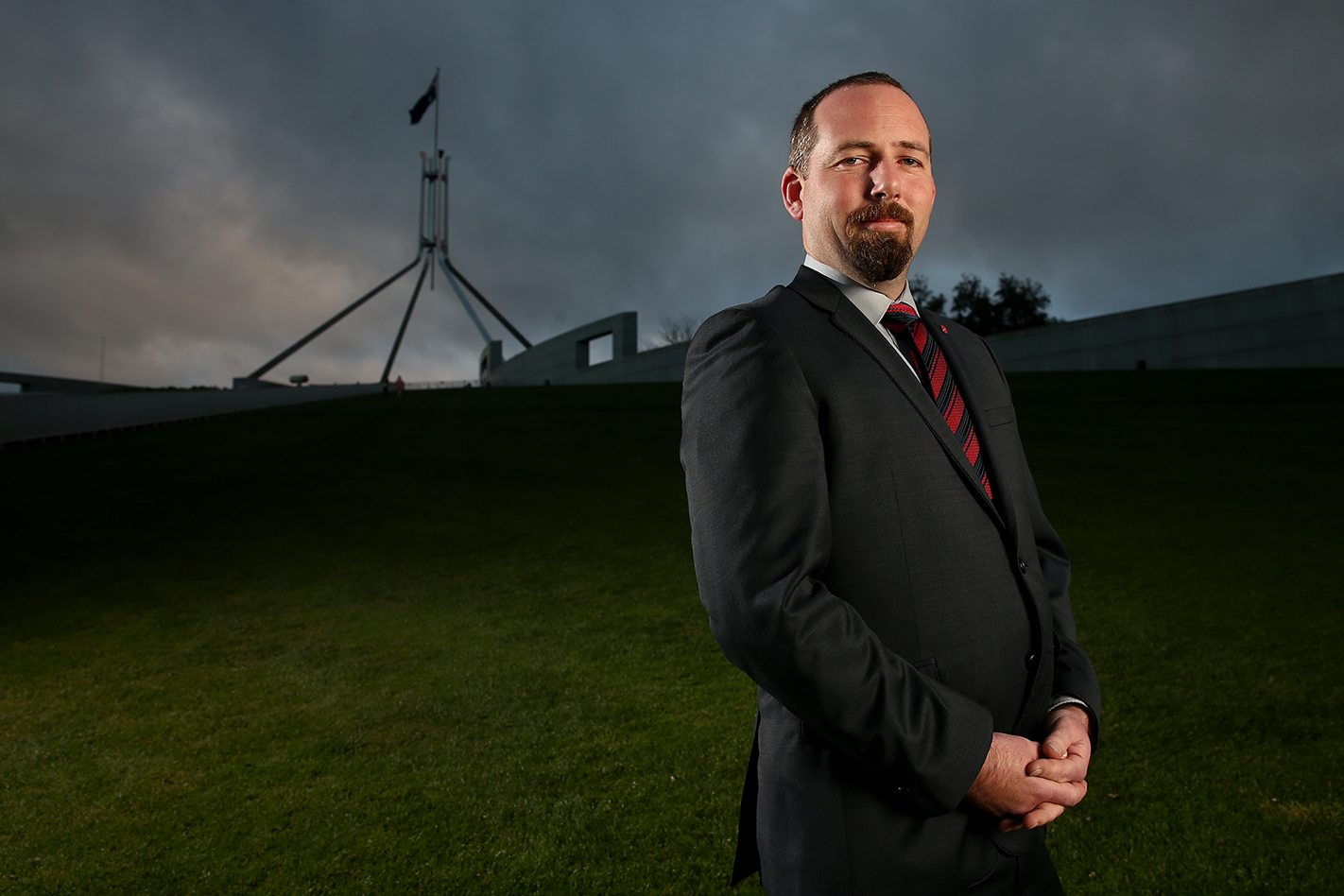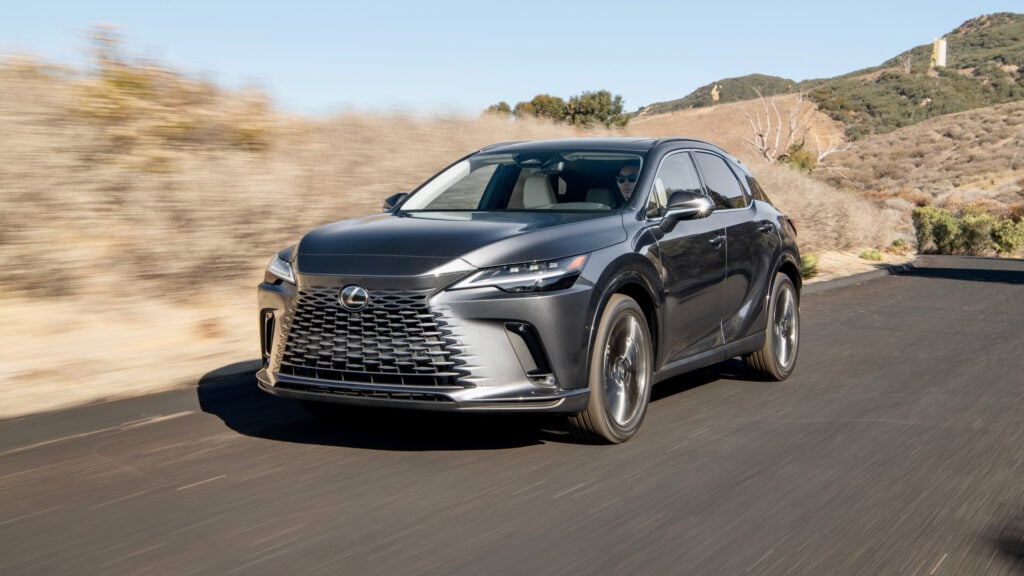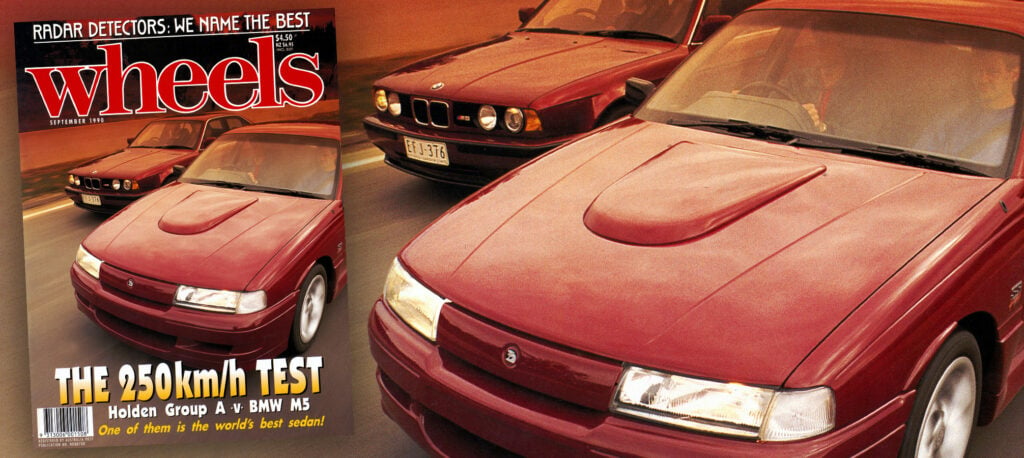HONESTLY, why would anyone want to be a politician? You harmlessly chomp on a few cigars, helpfully point out that poor people don’t have cars, and hopefully don’t read newspapers, and suddenly you’re a class-ist clown.
Or you bravely tell the public that rising temperatures and growing mountains of scientific evidence are no proof of global warming, and suddenly other world leaders start treating you like George W Bush’s thicker stepson. Who would want the stress?
You have to wonder whether Ricky Muir, the newly minted (to the tune of $192,000 a year, guaranteed for six years) senator from the Australian Motoring Enthusiast Party, really thought through the kind of opprobrium involved in being a politician (and after meeting him, you wonder whether he even knows what opprobrium means).
You probably know someone like Ricky, a simple bloke, massively into his cars, reads Wheels magazine, been modifying Fords and Holdens for years and then started getting into off-roading because big SUVs were the only thing he could fit his five kids into.
Ricky’s been working hard at a sawmill for years and his rough-skinned handshake is just one of the things that sets him apart from every other politician crammed into Canberra. The K-Mart, rubber-soled shoes and Kelly Country suit are brasher give-aways.
I’ve interviewed a disturbing number of politicians, but I’ve never met one as non-slick and non-drilled in the ways of media manipulation. When he’s offered some sandwiches for lunch, he laughs and pats his gut: “Not for me, I’m used to working for a living, now I just sit around doing bugger all.”
So why would a guy like this, a man who strongly shared middle Australia’s disdain and distrust for politicians, stand for election?
Ricky admits it was mainly “state issues” that led to him being a federal politician who now holds a significant part of the balance of power for the country’s lawmakers, and has been signed up to the team of Clive Palmer, a savvy, slightly insane powerbroker who eats rubes like him for breakfast.
“Like so many other Australians, I felt like our politicians didn’t necessarily listen to the voters, the taxpayers, so for a long time I’ve thought it would be great to get in there and actually have a say,” Ricky tells us.
“In the lead-up to the election, I was a four-wheel driver, a keen camper, someone who loves being outdoors and it was state-related issues that were frustrating me, track closures (locking off-road enthusiasts out of forests), four-wheel drivers being misrepresented because of the actions of a minority, and I thought, ‘this is unacceptable’.”
Like many angry people with computers, Ricky started posting rants on YouTube, which led to the AMEP contacting him and putting him forward as one of its senate candidates, without even meeting him face to face. To their surprise, and Ricky’s (“I was 11 out of 10 shocked”), he was the only AMEP runner elected, after garnering just 0.51 percent of the primary vote, the lowest ever by an elected candidate (the trick was his preference-sharing deals, organised by Glenn Druery – known as “the preference whisperer” – who he sacked as his chief of staff not long after getting to Canberra).
So what does he think of politicians now that he’s hanging out with them?
“Just like motoring enthusiasts, they may be misrepresented in the media every now and then,” he says. “It’s very different when you get there to have conversations with people, they’re generally unaccessible to the public. It is different to how they’re portrayed in the media. They’re trying to be reasonable. It’s possible they’re trying to do the right thing.”
It’s also possible they’re being nice to the new kid in class, because his vote may now determine the future of Budget measures, how much tax we will all pay, what it will cost to go to university – issues slightly broader than access to forest tracks.
The fact that the cross-benches can defy Labor and the Greens, and pass legislation for the government, puts Ricky in a powerful position. In a different Senate, he might bang on for six years about his party’s three big issues – road safety, driver education and uniform national road laws – and be largely ignored, but the way things are, he might be able to horse-trade his way to actual action on issues that concern motorists.
The worrying thing is his answers suggest he’s not actually sure where he stands on some of the big questions, and he’s doing what anyone in over their head in a new job does; fudging and hoping someone will tell him what to do.
So how will he action those three AMEP party pillars?
“The party itself actually thought quite intelligently and made a Motoring Advisory Council, getting all the peak motoring bodies together and industry groups and, you know, people, members of the community, and we’ve got six years, so there’s no need to get in there and make knee-jerk reactions, we can think about this really sensibly and speak to the experts and develop policies surrounding that,” he rambles.
But surely he has a firm position on speed cameras, for example? He lives in Victoria after all, and commutes to Canberra and back in his BA Falcon XR8.
“They’re sold to us as being safety cameras, and I do think they play a part, but I think police presence is important as well,” Muir says.
“I know first-hand that when you see a police car on the road you instantly behave and so if we know that affects people’s behaviour, then they should be seen.
“I really need to speak to more people before I form an opinion, but I don’t think they should be hidden, especially at the bottom of hills.”
Speaking to more people before forming an opinion is a line he uses a lot, as if he’s turned up without any of his own.
Does he support the Wheels campaign for a 130km/h limit on some sections of the Hume Highway, to reduce fatigue-related deaths?
“Personal responsibility does kick in a lot,” he says. “It really is about appropriate speeds, I’m certainly of a mind that the less time you spend on the road the less chance you’ve got of having fatigue, but I also wouldn’t want to see that going the other way and having people driving fatigued at higher speeds.
“It is about balance and it’s a good topic at the moment, so I can’t wait to actually get some more facts and information surrounding it.”
A good topic at the moment. Excellent. So would you support a review of limits or not?
“If the roads are capable of it and there’s very limited chance of wildlife wandering on the roads and causing implications, it’s something that maybe we should be able to consider,” he responds.
It’s the same with driver training, which he’s in favour of, yet not sure how to go about – maybe in schools, maybe not. But “it’s good to start a conversation about it,” he says, actually sounding more like a politician by the minute.
“My son’s getting his learner’s now, and that shouldn’t be the extent of it; read a book, get in the car, pass a test, you’re on your own,” he says.
“Personally, I’ll be giving him as much education as I can, I’ll get him on a race track if he so desires, so he’s learning skill. But, um, I think… driver education for all ages really is important for just about everybody.”
After some cogitating, he also tells us that he’s in favour of people on L plates being able to drive at the posted limit, instead of lower speeds in some states, and would like to see it made national law.
Ricky couldn’t say what the three top-selling cars in Australia were last year – “A Territory, I reckon, there’s a lot of those around” – who won Bathurst or what the model designation for the new Commodore is, but he’s definitely a motoring enthusiast, with three cars (one of them a drag racer in pieces) and five dirt bikes. And he’s wise enough to know that he has a lot to learn.
“I’m still trying to be myself; there is a great degree of learning and I don’t believe it will ever stop, it is a massive, steep learning curve, there’s no doubt about that,” he says.
He also realises he didn’t do a lot of work on his public profile in the months leading up to his swearing in, refusing to speak to the media for months, but says that’s because he was busy down at mill, right up to a week before he started in Canberra. And not because he’s not good in interviews.
“Now that I’m here, the public perception is going to go whichever way it’s going to go and I might gain a bit of support,” he says.
And what about the Willesee debacle, when he bumbled through a high-profile interview?
“I do have a speech prepared about that and it’s: ‘there’s no point crying over spilt milk. I knew they had the footage, it turned out the way it did, so so be it. I’m happy to keep moving forward’.”
Moving forward? Was that a Kevin Rudd-ism he just dropped? Stone the crows, Australia, Ricky Muir will be your prime minister before you know it.






